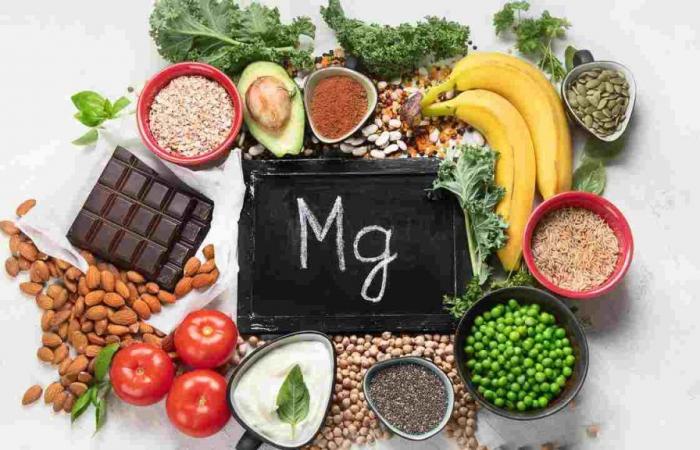Why magnesium is important and what to eat to get it. All the things that are very important to know to stay healthy.
Magnesium is an essential mineral for the proper functioning of the human body, yet many people do not pay enough attention to it. And yet, adequate magnesium intake is essential for our overall well-being. Let’s find out why it is so important and in which foods we can find it.
Magnesium plays a key role in numerous metabolic processes in our body. It is involved in energy production, enzyme activation, blood pressure regulation, and bone and dental health.
On the energy front, magnesium is essential for the conversion of food into ATP, the “energy currency” used by cells. Without a sufficient intake of this mineral, our body struggles to produce the energy necessary to carry out daily activities.
Likewise, magnesium is essential for the activation of over 300 enzymes, which regulate vital chemical reactions such as digestion, protein synthesis and nerve transmission. Magnesium deficiencies can therefore compromise numerous physiological functions.
Magnesium and its benefits for the cardiovascular system
An adequate intake of magnesium is also fundamental for the health of the cardiovascular system. This mineral helps to maintain blood pressure within normal levels, reducing the risk of hypertension.
In addition, magnesium helps prevent the accumulation of “bad” cholesterol (LDL) in the arteries, counteracting the onset of diseases such as atherosclerosis. Some studies have also demonstrated its potential role in reducing the risk of heart attack and stroke.
Then magnesium plays an essential role too for the health of muscles and bones. This mineral is essential for correct muscle tone and strength, promoting relaxation and contraction of the fibers.
At the same time, magnesium contributes to the absorption and use of calcium by the bones, preventing their weakening and the onset of diseases such as osteoporosis. Especially in the elderly, an adequate intake of magnesium can help counteract the loss of bone mass.
YOU MAY ALSO BE INTERESTED IN: Why do mosquitoes only bite some people? The most effective remedies to defend yourself
Where to Find Magnesium
Fortunately, magnesium is present in many commonly used foods. Some of the main food sources of this mineral are:
YOU MAY ALSO BE INTERESTED IN: Sculpted, slim and toned: 5 tips for showing off an enviable physique on the beach
Whole grains (bread, pasta, rice, oats)
Dried fruit (almonds, walnuts, hazelnuts, pumpkin seeds)
Legumes (beans, lentils, chickpeas)
Green leafy vegetables (spinach, chard, kale)
Fish rich in omega-3 fats (salmon, mackerel, sardines)
Bitter cocoa and dark chocolate
Additionally, many dietary supplements contain magnesium in concentrated form, making them useful for those who struggle to meet their requirements through diet alone.
YOU MAY ALSO BE INTERESTED IN: Euro 2024, why do we tend to eat pizza when football is on TV?
Regular magnesium intake is essential for maintaining healthy physiological processes, from energy metabolism to cardiovascular and musculoskeletal health. Paying attention to food sources of this essential mineral can be a simple but effective step toward overall well-being.






